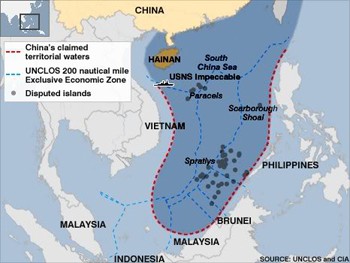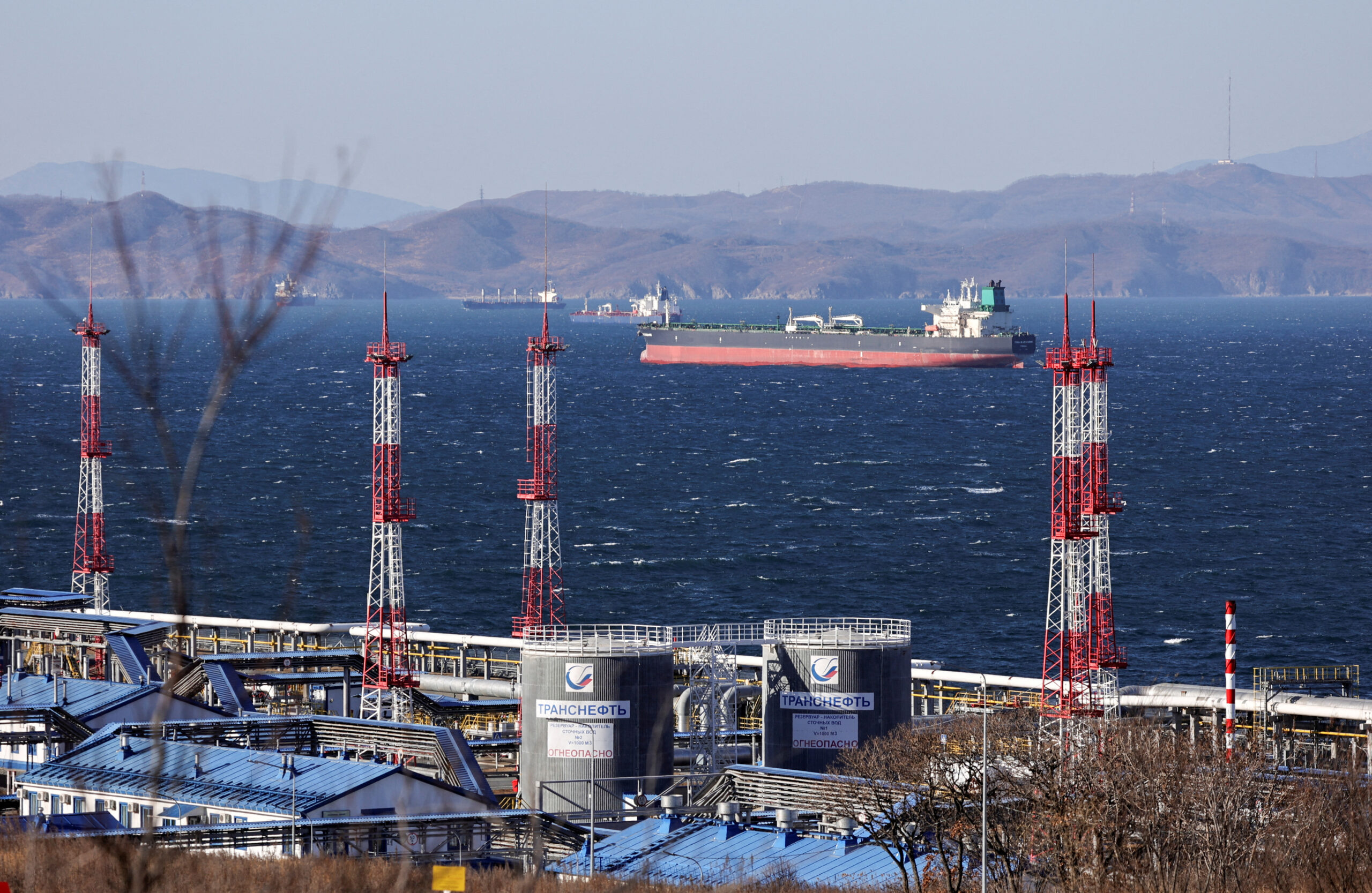– By John Bolton and Dan Blumenthal, Wall Street Journal
 The Law of the Sea Treaty (LOST) — signed by the U.S. in 1994 but never ratified by the Senate — is showing some signs of life on Capitol Hill, even as new circumstances make it less attractive than ever. With China emerging as a major power, ratifying the treaty now would encourage Sino-American strife, constrain U.S. naval activities, and do nothing to resolve China’s expansive maritime territorial claims.
The Law of the Sea Treaty (LOST) — signed by the U.S. in 1994 but never ratified by the Senate — is showing some signs of life on Capitol Hill, even as new circumstances make it less attractive than ever. With China emerging as a major power, ratifying the treaty now would encourage Sino-American strife, constrain U.S. naval activities, and do nothing to resolve China’s expansive maritime territorial claims.
At issue is China’s intensified effort to keep America’s military out of its “Exclusive Economic Zone,” a LOST invention that affords coastal states control over economic activity in areas beyond their sovereign, 12-mile territorial seas out to 200 miles. Properly read, LOST recognizes exclusive economic zones as international waters, but China is exploiting the treaty’s ambiguities to declare “no go” zones in regions where centuries of state practice clearly permit unrestricted maritime activity.
Take the issues of intelligence gathering. LOST is silent on the subject in the exclusive zones, so China claims it can regulate (meaning prohibit) such activity.
China wants to deny American access so it can have its way with its neighbors. Beijing is building “anti-access” and “area denial” weapons such as integrated air defenses, submarines, land-based ballistic and cruise missiles, and cyber and anti-satellite systems.
If the Senate ratifies the treaty, America would become subject to its dispute-resolution mechanisms and ambiguities. Right now, since the U.S. is the world’s major naval power, its conduct dominates customary international law — to its decided advantage.
This dispute is not really about law. China simply does not want the U.S. military to gather intelligence near its shores. And others quietly support China’s position, including Russia, Iran, and India. Given China’s incursions into other Asian nations’ exclusive zones, these states may seek to restrict international maritime activities as well, complicating U.S. efforts.
All Washington wants is to do what it has done since it became a maritime power: use its Navy to enhance international peace and security, deter conflict, reassure allies, and collect intelligence. LOST undercuts these strategic imperatives, and that is why it has always been a bad idea for the U.S.
The treaty is not an answer — it is only a beguiling, flawed escape hatch from the hard work America and others must do to meet China’s challenge.
That hard work must include properly funding and equipping the U.S. Navy and exercising it in China’s exclusive zones, especially on intelligence missions, based on long-established state practice. Together with diplomacy to prevent conflicts, these steps will reassure allies of full U.S. support in resolving disputes with China.
—
Mr. Bolton served as U.S. ambassador to the United Nations from 2005 to 2006. Mr. Blumenthal was a senior country director for China and Taiwan in the Office of the U.S. Secretary of Defense.

 Join The Club
Join The Club




 The Law of the Sea Treaty (LOST) — signed by the U.S. in 1994 but never ratified by the Senate — is showing some signs of life on Capitol Hill, even as new circumstances make it less attractive than ever. With China emerging as a major power, ratifying the treaty now would encourage Sino-American strife, constrain U.S. naval activities, and do nothing to resolve China’s expansive maritime territorial claims.
The Law of the Sea Treaty (LOST) — signed by the U.S. in 1994 but never ratified by the Senate — is showing some signs of life on Capitol Hill, even as new circumstances make it less attractive than ever. With China emerging as a major power, ratifying the treaty now would encourage Sino-American strife, constrain U.S. naval activities, and do nothing to resolve China’s expansive maritime territorial claims.






